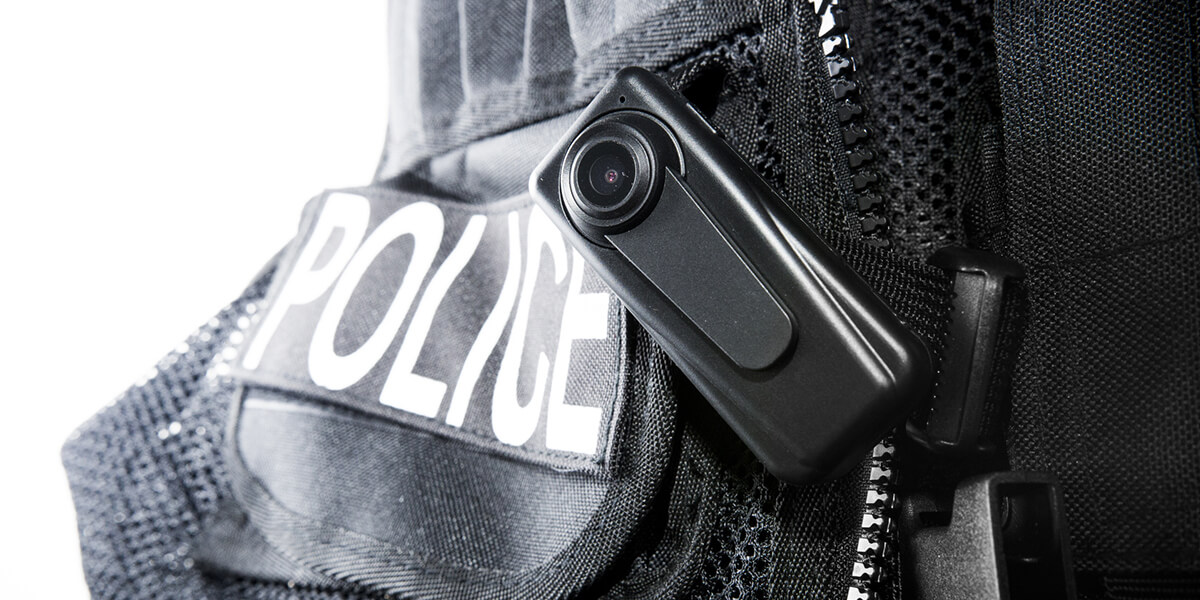Police body camera footage is an increasingly important piece of evidence in criminal type cases. This goes for both the prosecution, in Family Court known as the Presentment Agency, and the accused youth.
By October 1, 2019, children up through the age of 17 will have their criminal cases tried in Family Court instead of criminal court, courtesy of New York State’s Raise the Age Law. These proceedings are known as Juvenile Delinquency cases. Not only will this lead to an increased workload for Family Court judges across the state, as well as increased numbers of judges and staff and an increased number of housing facilities for juveniles, but it will also lead to an increased use of police body camera footage as evidence in Family Court cases. On the prosecution’s side, the body camera footage can clearly show that a crime has been committed and investigated, and the suspect has been apprehended. On the accused youth’s side, the footage can equally provide evidence that casts doubt on the prosecution’s case, including any gaps between when the crime was allegedly committed and when and where the youth was arrested, as well as any procedural errors or omissions that may have been committed by the arresting officers.
There is almost no difference in police body camera footage policy between criminal court and Family Court cases. Unedited footage is required to be turned over to the accused’s counsel, along with all criminal reports and statements, photographs and videos taken by police and witnesses, and it is used in the same manner for both Family Court and criminal court proceedings. The only significant difference is that the timeframe for turning over evidence to the accused’s counsel is shorter for Family Court than in criminal court cases. If body camera footage is not turned over to the accused youth’s counsel, any judge – criminal court or Family Court – can move to dismiss the case or sanction the prosecuting attorney/presentment agency.
While body camera footage is an important piece of evidence in any criminal trial, it isn’t universally available or required in New York State. Numerous municipal and county police agencies do not have body cameras, and not all of those that do have them require their officers to turn on the cameras from the moment a call comes in from dispatch. Even if there is a requirement in place to turn their cameras on from the time the call comes in to the completion of the investigation, not all officers follow through. Sometimes, activities the police officer is involved in – chases, take-downs, etc. – allegedly cause the body camera to turn off, seemingly by itself, or the camera falls off the police officer, like in a foot chase or scuffle. Each agency using body cameras is supposed to develop procedures to address these issues, but the process is not always viewable. And once camera footage is deleted or simply not started, the process becomes less useful or helpful.
If your child is charged with a crime, you should ask the arresting police department if its officers wear body cameras, and if so, you should ask for a copy of the video footage. Citizens have a right to a copy of the footage without official obstruction. If your request is denied for any reason, you should contact your or your child’s attorney to obtain the footage.
If the body camera footage is entered as evidence for your child’s Family Court trial, your child’s attorney will view the footage and decide what the best course of action is. Remember, in a Family Court trial, the standard of proof is not “beyond a reasonable doubt,” as Family Court legal matters are civil proceedings, not criminal. Evidence properly admitted only has to convince the judge that a crime has been committed, and the youth accused of committing the crime is the correct person to be held accountable. An experienced trial attorney is able to look at the footage and see or hear something that might help cast reasonable doubt. Do not attempt to analyze the footage yourself.
Finally, remember that while it will have the feel of a criminal court trial, a Family Court trial is a civil proceeding and is the best court for your child. The charges and the outcome of the case will be sealed, so no one will have access except for law enforcement officials. And juvenile records may now be expunged under certain circumstances, also a part of the new law. If your child is found to be responsible for the alleged offense, he or she may be sent to a juvenile detention center, rather than a prison where he or she would be exposed to a dangerous environment. It is far from ideal, but it will give your child a chance to start over without a criminal charge on his or her record. Also, in Family Court there are a far greater range of dispositional alternatives to detention that may keep your child in the community – either with you in the community, usually with conditions set by a Judge, or at a much closer residential placement where services can be provided to the youth and your family.
So if your child is facing an allegation of a quasi-criminal charge in Family Court, be prepared for all evidence that is admitted into trial, including police body camera footage. Have your attorney look over everything and decide what the best course of action is.
Christine F. Redfield, Esq. is a family and matrimonial attorney at Tully Rinckey PLLC’s Rochester office who focuses her practice on divorce and child custody cases.







